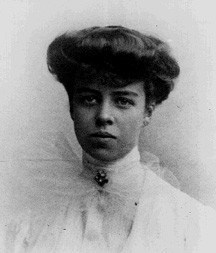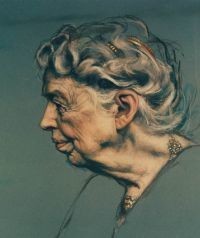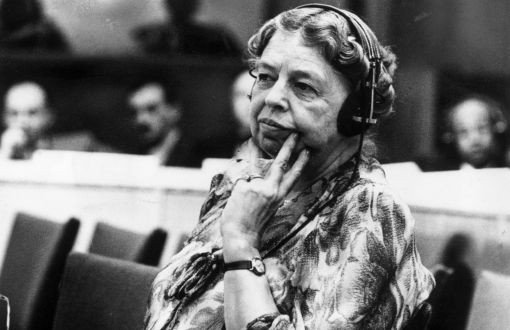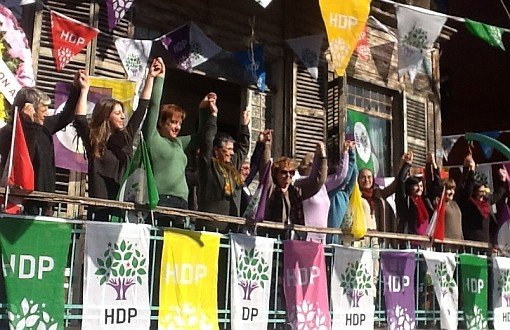Click here to read the article in Turkish / Haberin Türkçesi için buraya tıklayın
Anna Eleanor Roosevelt was born on 11 October 1884 into a wealthy, politically-connected family. Her father's brother was Theodore Roosevelt, the 26th president of the United States (1901 to 1909). Theodore had a distant cousin named Franklin Roosevelt, who fell in love with and married Eleanor and eventually, through her help, became the longest-serving US president, from 1933-1945 (the 32nd U.S. President).
 The era she was born into tied a woman's importance and worth to her husband's. The most important job for a woman was to find and marry a good husband. Because she was born into a wealthy, privileged family, you might think she had an ideal childhood, but that is not the case. When she was eight years old, her mother died from diphtheria. The following year, her younger brother Elliott died of the same disease and the year following that, her father, who was an alcoholic, also died. Three years, three deaths, and the marks of these early traumas never fully left her, revealing itself in bouts of depression throughout her remarkable life.
The era she was born into tied a woman's importance and worth to her husband's. The most important job for a woman was to find and marry a good husband. Because she was born into a wealthy, privileged family, you might think she had an ideal childhood, but that is not the case. When she was eight years old, her mother died from diphtheria. The following year, her younger brother Elliott died of the same disease and the year following that, her father, who was an alcoholic, also died. Three years, three deaths, and the marks of these early traumas never fully left her, revealing itself in bouts of depression throughout her remarkable life.
After the death of her parents, she lived with her maternal grandmother. She lacked confidence and felt she was ugly; she had much to overcome. As an early teenager she was sent to Allenswood Academy, a boarding school in England, something that would shape her identity and her life forever. The headmistress was Marie Souvestre and the impact of her education on Eleanor was profound. Eleanor became an independent thinker and gained much-needed self confidence during her time there.
Unfortunately, her time at the school was cut short after only three years, so that she could come home and start looking for a husband. She was only 17 years old. That very same summer, she met Franklin Roosevelt and they became romantically involved, leading to an engagement the next year. After a long engagement, and despite the wishes of Franklin's mother to break them up, Eleanor and Franklin married on 17 March 1905. She was 20.
Eleanor devoted herself to family life until 1918, when she learned of Franklin's affair with her social secretary, Lucy Mercer. Much like Bill and Hilary Clinton, Eleanor and Franklin stayed married; however, their relationship changed. After the discovery of the affair, they became more of a political partnership than a romantic one, which ended up helping them both immensely. Eleanor started getting active in social causes outside the home, which gave her a positive outlet for her attention.
Then, in 1921, something happened that would change the course of Eleanor's and Franklin's lives forever. Franklin was diagnosed with polio, which permanently paralyzed his legs. While his mother wanted him to retire from politics and public life, Eleanor urged him to stay in politics. Eleanor won that battle and Franklin, despite his disability, would go on to become the governor of New York and then president of the United States. Through his political life, Eleanor often became a stand-in for her husband, becoming a skilled politician in her own right. She became quite influential in the Democratic Party, and it was through her help and influence that Franklin became governor of New York, and later president.
In 1933, Eleanor became the First Lady of the United States of America, a role she did not really want because of the limitations it imposed on her life and activism. The role of First Lady was restricted to the domestic sphere, in particular to hostessing duties. With the support of her husband, she redefined the role of First Lady to make it better suited to her personality and interests. She continued her activism, public speaking and even wrote a regular newspaper column. Eleanor had a competitive streak and was determined to make as much money as her husband, the president. She accomplished that goal with her lectures and writing, and she gave most of her earnings to charity.
One of my favorite stories is how she helped advance women in journalism. She regularly held press conferences, which no other First Lady did, and seeing the male-dominated field of journalism, she decided to do something about it. At her press conferences, she banned any male reporters from attending, thereby forcing the newspapers to have female reporters on staff if they wanted to cover her press conferences, which they did. She also often spoke and wrote about women's issues in order to give women a voice. She would continue this in her various roles throughout her life.
While her husband, Franklin, was very supportive of her, they didn't always agree, and sometimes they publicly disagreed. In fact, right before he became president, Eleanor disagreed so strongly with his policies on public spending that she wrote an editorial about it. She also disagreed with his policy of not accepting more refugees from Nazism during World War II, as well as his internment of Japanese-Americans during the war.
Eleanor fought tirelessly for human rights throughout her life. After Franklin died in 1945, the next U.S. President, Harry Truman, appointed her as a delegate to the United Nations General Assembly, and in 1946 she became the first chairperson of the United Nations Commission on Human Rights. She was very influential in the writing of the Universal Declaration of Human Rights, something many consider to be her greatest accomplishment.
She continued her work for human rights and held various positions in the United Nations, the Peace Corps, and as the chair of the Presidential Commission on the Status of Women, where she served until her death on 7 November 1962. She was 78 years old. She was one of the most influential people of the 20th century, and her legacy still continues to this day. We all owe a debt of gratitude to Eleanor Roosevelt for everything she accomplished and for inspiring the following generations to be better human beings and to live their potential to the fullest. Thank you, Eleanor. (SA/HK/TK)
* She has worked in various fields, from Human Resources to running her own small hotel. She has a Masters degree in Psychology and currently resides in Istanbul. She writes for bianet.






